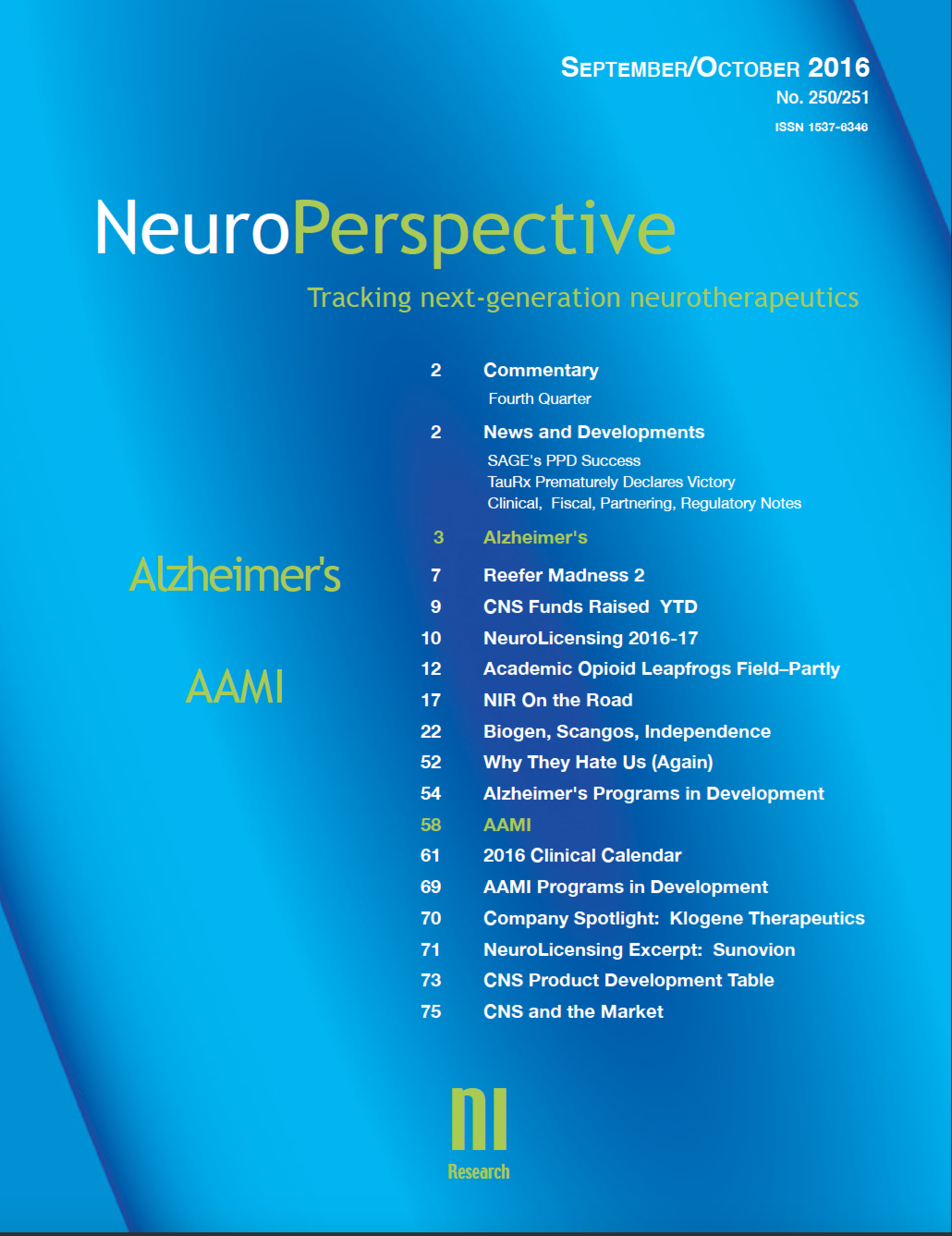The September/October issue of NeuroPerspective has been released. It features our comprehensive annual review of the Alzheimer’s space, including an assessment of the current conceptual trends vis-a-vis pathophysiology and therapeutic targets. One major theme is the resuscitation of the amyloid antibody space by the FDA, led by Biogen‘s Aduhelm. But Biogen, due partly to their gross misreading of the cost environment, may not be the major beneficiary of the FDA’s abdication of its role in quality control: Lilly‘s donanemab may well be the next Accelerated Approval in the Alzheimer’s space, its main role, other than being a slightly less mediocre aducanumab, will be to provide competition and drive down pricing in this nascent market.
Hopes for tau as a target for monoclonal antibodies have been largely dashed, a judgment unchanged by AC Immune‘s fluky finding on one cognitive endpoint on one out of two trials. The revival of the amyloid hypothesis will divert resources and patients from clinical trials for other therapeutic targets, the most promising of which tend to be in the neuroinflammation and cellular waste disposal categories. The neuroimmunological space has just started to mature, with clinical stage programs underway from Denali/Sanofi and Alector/AbbVie. This type of midstream focus offers the prospect of disease modification without having to precisely identify the upstream molecular culprit that initiates the disease process. Cortexyme has done its correlational homework for the p.gingivalis hypothesis, in the next four months it will be clear whether there is a causal link to AD and an antibiotic solution. There are also a slew of small companies whose programmatic execution is sloppy and their hyperbole excessive, with Cassava and Annovis prominent in that group.
Among the 200+ programs assessed are those from: AbbVie/Alector, AC Immune, Anavex, Athira, Axon-Neuroscience, Biogen, Casma, Cognition Therapeutics, Cortexyme, Denali, Eisai, Lilly, Roche, Syndesi, TauRx. There is coverage assessing prospects for further Accelerated Approvals.
The issue also includes a full review of Huntington’s, the landscape having been transformed by the failure of the first wave of ASO programs from Roche/Ionis and Wave/Takeda. UniQure, Triplet, Voyager, and Prilenia are among the other companies reviewed.
The September/October issue includes a focused review of ParosBio and their gene therapy program for autosomal dominant Alzheimer’s. Our Psychedelics update section notes developments for Beckley Psytech and ATAI, and the implications of legislative movement in Oregon and California, which yields as much risk as opportunity.
The Alzheimer’s/Huntington’s issue is being made available for single-issue purchase: $700.
94 pages.

